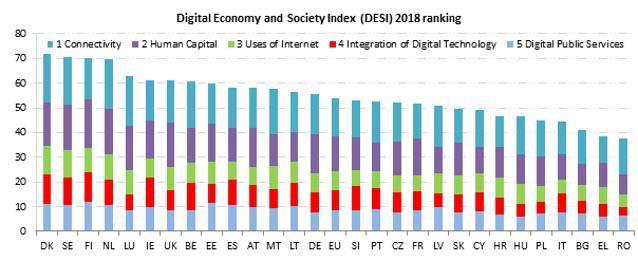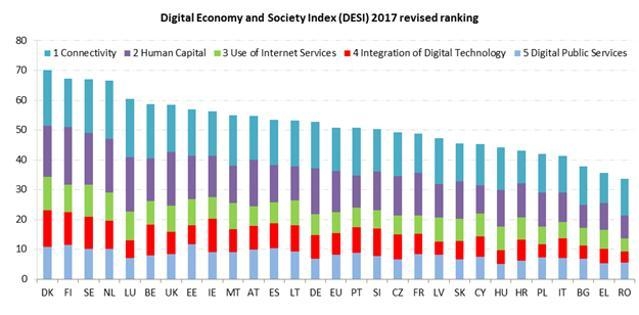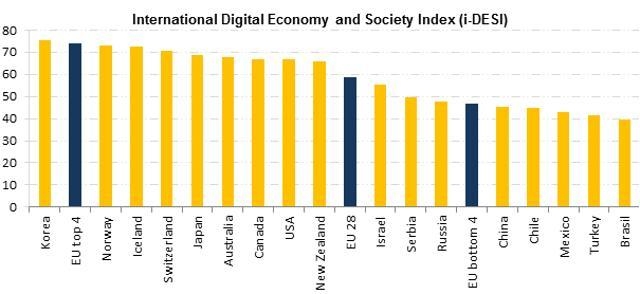(Susceptible de modifications en cours de semaine)
Déplacements et visites
Lundi 21 mai 2018
Whit Monday
Mr Karmenu Vella in Utrecht, The Netherlands: meets Ms Stientje van Veldhoven, State Secretary for Infrastructure and Water Management of The Netherlands; delivers opening and closing speeches for the official opening of Green Week event; participates in a Citizens’ dialogue; visits Hof van Cartesius and delivers a speech for the opening of the court garden; meets Ms Mariëtte Pennarts, Provincial-Executive for the Environment, Recreation and European Affairs; meets citizens active in the Utrecht green network and Utrecht University students; visits and delivers a speech at the botanical garden; attends and delivers a speech at “The Young Councillors debate” workshop; and attends a presentation of the results of the “Designing Green and Healthy City” creathon.
Mr Christos Stylianides in Madrid, Spain: meets members of the Home Affairs Commission of the Parliament of Spain to present the rescEU proposal to strengthen the EU system of civil protection; Mr Juan Ignacio Zoido, Minister for Home Affairs of Spain; and delivers a speech at the “Nueva Economia Forum” about Climate Change and rescEU.
Ms Elżbieta Bieńkowska in Katowice, Poland: meets representatives of the Archdiocese of Katowice.
Ms Vĕra Jourová in Prague, Czech Republic: delivers a speech at the conference ‘Multiple Challenges for Europe 2018’, organised by the Institute for Politics and Society.
Ms Corina Crețu in Bacău, Romania (until 22/05): delivers a speech at the conference “Europe’s Urban Investments: a challenge for change”; and visits an EU-funded project, the County Emergency Hospital Bacău.
Ms Mariya Gabriel in Milan, Italy: holds Citizens’ dialogue with Politecnico students; meets Ms Roberta Cocco, Councillor for Digital Transformation and Citizens Services at Municipality of Milan; Ms Sabrina Baggioni, Mr Giorgio Migliarina and Mr Michelangelo Suigo, representatives of Vodafone; attends a role modelling session for STEMinTheCity; meets Mr Davide Dattoli and Mr Lorenzo Maternini, representatives of Talent Garden community for accelerating digital innovation; and attends the “Tecnovisionarie” Award Prize.
Mardi 22 mai 2018
22/05 Foreign Affairs Council (Trade)
22/05 Foreign Affairs Council (Development)
22-23/05 Education, Youth, Culture and Sports Council
President Jean-Claude Juncker receives Mr Adama Barrow, President of the Gambia.
Mr Frans Timmermans receives Ms Svenja Schulze, Minister for the Environment, Nature Conservation and Nuclear Safety of Germany.
Mr Frans Timmermans receives Mr Owen Bonnici, Minister for Justice, Culture and Local Government of Malta.
Mr Frans Timmermans delivers a speech on Transparency and Gender Equality at an event organised by Bloomberg, in Brussels.
Ms Federica Mogherini receives Mr Adama Barrow, President of The Gambia.
Ms Federica Mogherini and Mr Neven Mimica participate in the International Conference for The Gambia and deliver speeches, in Brussels.
Ms Federica Mogherini delivers an opening speech at the Conference on the Comprehensive Nuclear-Test-Ban-Treaty, in Brussels.
Mr Andrus Ansip participates in a roundtable discussion with the CEOs of the Pan-European Insurance Forum (PEIF), in Brussels.
Mr Jyrki Katainen in Berlin, Germany: attends a working lunch with Mr Olaf Scholz, Vice-Chancellor and Minister for Finance of Germany; Ms Ursula von der Leyen, Minister for Defence; and Mr Helge Braun, Minister of State to the Federal Chancellor; discusses the European Defence Action Plan with senior officials of the Ministry of Defence; and participates in a Citizens’ dialogue on “Tomorrow’s Europe and global megatrends”.
Mr Johannes Hahn in Kyiv, Ukraine: on official visit.
Mr Miguel Arias Cañete receives Mr José Bogas Gálvez, CEO of Endesa.
Mr Miguel Arias Cañete receives Mr William Todts, Executive Director at Transport and Environment (T&E).
Mr Miguel Arias Cañete receives Ms Svenja Schulze, Minister for the Environment, Nature Conservation and Nuclear Safety of Germany.
Mr Karmenu Vella receives Ms Svenja Schulze, Minister for the Environment, Nature Conservation and Nuclear Safety of Germany.
Mr Karmenu Vella delivers a speech at the European Week for Waste Reduction (EWWR) Awards ceremony, in Brussels.
Mr Karmenu Vella receives CEOs of Cruise Lines International Association (CLIA) Europe.
Mr Karmenu Vella delivers a speech at the opening session of Green Week high-level conference, in Brussels.
Mr Vytenis Andriukaitis receives representatives of organisations in the sector of cardiovascular medicine – the European Association for Cardio-Thoracic Surgery (EACTS), the European Society of Cardiology (ESC) and the European Society for Cardiovascular and Endovascular Surgery (ESCVS).
Mr Vytenis Andriukaitis receives Ms Svenja Schulze, Minister for the Environment, Nature Conservation and Nuclear Safety of Germany.
M. Pierre Moscovici à Paris, France: rencontre la mission d’information sur l’évasion et l’optimisation fiscales à l’Assemblée Nationale; et M. Jean-Yves Le Drian, Ministre de l’Europe et des Affaires étrangères de la France.
Mr Christos Stylianides receives Ms Minata Samate Cessouma, Commissioner for Political Affairs of the African Union (AU).
Mr Phil Hogan delivers opening speech at the European Network for Rural Development (ENRD) Seminar on ‘Smart Villages’, in Brussels.
Mr Phil Hogan receives Mr Jim Collins, Chief Operating Officer of Corteva Agriscience, Agriculture Division of DowDuPont.
Ms Violeta Bulc in Germany (until 23/50): in Berlin: meets Mr Olaf Scholz, Vice-Chancellor and Minister for Finance of Germany; and Mr Andreas Scheuer, Minister for Transport and Digital Infrastructure.
Ms Elżbieta Bieńkowska participates in a LinkedIn Economic Graph Forum: “Addressing the challenges of the future of work” at the European Parliament, in Brussels.
Mr Tibor Navracsics opens the ceremony marking the 10th anniversary of the European Union Prize for Literature, in Brussels.
Ms Corina Crețu in Bacău, Romania: participates in a Citizens’ dialogue, together with Ms Rovana Plumb, Minister for European Funds of Romania.
Mr Carlos Moedas receives Mr Peter Grauer, Chairman of the Bloomberg L.P. Board.
Mr Carlos Moedas participates in the signing ceremony of the EU-Brazil Administrative Arrangement to support EU-Brazil cooperation in research and innovation activities, in Brussels.
Mr Carlos Moedas receives Ms Anja Karliczek, Minister for Education and Research of Germany.
Ms Mariya Gabriel receives representatives from AEPO ARTIS Association of European Performers Organisations.
Ms Mariya Gabriel receives Mr Xu Lin, Minister of the Cyberspace Administration of China (CAC).
Ms Mariya Gabriel receives Ms Anja Karliczek, Minister for Education and Research of Germany.
Ms Mariya Gabriel hosts a celebration of the Slavonic Literature and Culture Day, at the European Commission, in Brussels.
Mercredi 23 mai 2018
College meeting
Education, Youth, Culture and Sports Council
President Jean-Claude Juncker receives Mr Moussa Faki, Chairperson of the African Union Commission.
President Jean-Claude Juncker, together with the College of Commissioners, receives the African Union Commission and its Chairperson, Mr Moussa Faki, for a College to College meeting.
President Jean-Claude Juncker holds a joint press point with Mr Moussa Faki, Chairperson of the African Union Commission.
President Jean-Claude Juncker receives Mr Bernd Althusmann, Deputy Minister-President of Lower Saxony.
Mr Frans Timmermans receives Mr Christian Kern, former Federal Chancellor of Austria.
Mr Frans Timmermans receives Mr Klaus Schwab, Founder and Executive Chairman of the World Economic Forum (WEF).
Mr Frans Timmermans delivers the closing keynote speech at the Brussels Sustainable Development Goals (SDG) Summit, in Brussels.
Mr Frans Timmermans, Mr Jyrki Katainen and Mr Pierre Moscovici participate in debates and roundtables at the European Business Summit, in Brussels.
Mr Frans Timmermans receives the Prix du Judaisme from the Conference of European Rabbis, in Brussels.
Ms Federica Mogherini receives Mr Moussa Faki, Chairperson of the African Union Commission.
Mr Maroš Šefčovič in Malmö, Sweden: co-chairs the Clean Energy Ministerial and Mission Innovation Ministerial meetings.
Mr Jyrki Katainen receives Mr Christoph Leitl, President of Eurochambres and President of the Austrian Federal Economic Chamber (WKÖ).
Mr Johannes Hahn in Kyiv, Ukraine: on official visit.
Mr Karmenu Vella delivers a speech and presents awards at the “LIFE Green Awards” ceremony, in Brussels.
Mr Dimitris Avramopoulos and Mr Julian King in Sofia, Bulgaria: participate in the EU-US Justice and Home Affairs Ministerial Meeting.
M. Pierre Moscovici reçoit M. Klaus Schwab, Fondateur et Président exécutif du Forum économique mondial.
M. Pierre Moscovici reçoit M. Nicolas Dufourcq, Directeur général de Bpifrance.
M. Pierre Moscovici participe à une conférence sur le trafic illicite des biens culturels, organisée par les députés Mme Sabine Verheyen et M. Arndt Kohn, au Parlement européen, à Bruxelles.
Mr Phil Hogan receives Ms Francesca McDonagh, Group CEO of Bank of Ireland.
Ms Violeta Bulc in Leipzig, Germany: takes part in the Ministers’ Roundtable: Transport and Climate – moving forward from COP23; and delivers a keynote speech at the International Transport Forum.
Ms Corina Crețu receives Ms Natascha Kohnen, Head of the Bavarian Socialist Party (SPD).
Ms Corina Crețu receives Ms Silvia Clemente Municio, President of Regional Parliament of Castilla y León.
Ms Margrethe Vestager participates in the annual reception of the Danish Trade Unions, in Brussels.
Mr Carlos Moedas in Malmö, Sweden: participates in the Clean Energy Ministerial meeting.
Ms Mariya Gabriel delivers opening speech at EU Conference on Youth, Peace and Security – Promoting Youth in Peacebuilding, in Brussels.
Jeudi 24 mai 2018
24/05 Eurogroup
President Jean-Claude Juncker participates in a commemorative plenary session on the occasion of the 60th anniversary of the European Economic and Social Committee (EESC), in Brussels.
President Jean-Claude Juncker receives Mr Klaus Schwab, Founder and Executive Chairman of the World Economic Forum (WEF).
President Jean-Claude Juncker receives Mr Petteri Orpo, Deputy Prime Minister and Minister for Finance of Finland.
President Jean-Claude Juncker receives Mr Volodymyr Groysman, Prime Minister of Ukraine.
Mr Frans Timmermans in Berlin, Germany (until 25/05): on official visit.
Ms Federica Mogherini receives European youth representatives as part of the EU conference on youth, peace and security.
Ms Federica Mogherini, Mr Valdis Dombrovskis and Ms Cecilia Malmström deliver keynote speeches at the European Business Summit, in Brussels.
Mr Andrus Ansip meets Mr Bruno Studer, President of the Cultural and Education Affairs Commission of the French National Assembly.
Mr Maroš Šefčovič in Copenhagen, Denmark (until 24/05): co-chairs the Clean Energy Ministerial and Mission Innovation Ministerial meetings.
Mr Valdis Dombrovskis takes part in a European Political Strategy Center (EPSC) high-level policy lunch with Mr Klaus Schwab, Founder and Executive Chairman of the World Economic Forum (WEF), in Brussels.
Mr Jyrki Katainen receives Mr Jean Pierre Mustier, CEO of UniCredit.
Mr Jyrki Katainen delivers a keynote speech at the 2018 Institute of International Finance Spring Membership Meeting, in Brussels
Mr Jyrki Katainen receives Mr Bill Winters, CEO of Standard Chartered Bank.
Mr Günther H. Oettinger in Paris, France: participates in a debate on the European Commission’s proposal of the Future of EU finances and the post-2020 Multiannual Financial Framework (MFF), in the French Senate.
Mr Miguel Arias Cañete in Copenhagen, Denmark: participates in the Clean Energy Ministerial meeting and Mission Innovation Ministerial meeting; and delivers opening remarks at the Energy Infrastructure Forum 2018, organised by the European Commission.
Mr Karmenu Vella delivers a speech at the closing session of the of Green Week high-level conference, in Brussels.
Mr Vytenis Andriukaitis inVilnius, Lithuania (until 25/05): delivers a speech at the EPSU-HOSPEEM Conference; participates in the International Exhibition for Agriculture and Food Industry AgroBalt 2018; and delivers a speech at the high-level political forum on Food Losses and Food Waste in the framework of the Exhibition.
Ms Marianne Thyssen receives Mr Ingo Kramer, President of the Confederation of German Employers (BDA).
M. Pierre Moscovici à Paris, France: est auditionné par les commissions des Finances et Affaires européennes de l’Assemblée nationale.
Mr Christos Stylianides in Washington D.C., the United States (until 25/05): delivers speeches at the high-level luncheon on health security “Strengthening EU-US cooperation in emergency response” organised by the Center for Strategic and International Studies; and at the high-level workshop on the Ebola Response, organised by the Georgetown University.
Ms Elżbieta Bieńkowska in Milano, Italy: participates in EU Plastic Converters conference.
Ms Vĕra Jourová delivers a speech at the European Data Protection Board reception in Brussels.
Mr Tibor Navracsics in Paris, France: participates in and delivers a speech at the Conference on the Bologna Process; and meets Ms Audrey Azoulay, Director General of the United Nations Educational, Scientific and Cultural Organisation (UNESCO).
Ms Corina Creţu delivers an opening speech at the high-level conference on Governance and Cohesion Policy, in Brussels.
Ms Corina Creţu receives Mr Richard Raši, Deputy Prime Minister for Investments and Informatisation Government Office of Slovakia.
Ms Corina Creţu receives Mr Javier Moliner, President of the Council of Castellon province (Spain).
Mr Carlos Moedas in Portugal (until 25/05): in Lisbon: delivers an opening keynote speech at a conference on the knowledge valorisation roadmap, organised by Ms Margarida Mano, Vice-President of the Portuguese Social Democratic Parliamentary Group (PSD); participates in a public debate about Europe with Mr Nuno Melo, Member of the European Parliament; in Estoril: participates in a working dinner of the 28th Congress of International Federation of European Law (FIDE).
Mr Julian King in Manchester, the United Kingdom: meets Andy Burnham, Mayor of Greater Manchester; and visits the UK Passenger Information Unit.
Vendredi 25 mai 2018
25/05 European Economic Area Council
President Jean-Claude Juncker receives Mr Prayut Chan-o-cha, Prime Minister of Thailand.
President Jean-Claude Juncker in Tbilisi, Georgia: participates in the celebrations of the 100th anniversary of Georgia’s first democratic republic.
Mr Frans Timmermans in Berlin, Germany: on official visit.
Ms Federica Mogherini receives Mr Volodymyr Groysman, Prime Minister of Ukraine.
Ms Federica Mogherini participates in the Civil Society Dialogue Network event “The European Union as a Global Peace Actor: Exchange of views on the EU and conflict prevention”, in Brussels.
Ms Federica Mogherini receives Ms Henrietta Fore, Executive Director of the United Nations International Children’s Emergency Fund (UNICEF).
Mr Maroš Šefčovič receives Mr Volodymyr Groysman, Prime Minister of Ukraine.
Mr Maroš Šefčovič delivers an opening statement at the Ukraine Gas Transmission conference, in Brussels.
Mr Jyrki Katainen receives Mr Ken Hu, Deputy Chairman of Huawei’s Board of Directors and Rotating CEO.
Mr Jyrki Katainen receives Mr Werner Hoyer, President of the European Investment Bank (EIB).
Ms Cecilia Malmström in Valencia, Spain: participates in a Citizens’ dialogue; meets representatives of the Association of Businesswomen and Professionals of Valencia (EVAP); Mr Ximo Puig, President of the Regional Government of Valencia; and visits two local companies, Ford and Jeanologia S.L.
Mr Karmenu Vella in Madrid, Spain: meets representatives of the Spanish Chamber of Commerce; and Ms Manuela Carmena, Mayor of Madrid; and visits Gran Via and the Manzanares river.
Mr Vytenis Andriukaitis in Vilnius, Lithuania: participates in the International Conference “Effectiveness and Sustainability of the Lithuanian Health System”, in the Seimas (Lithuanian Parliament); and meets Mr Han Changfu, Minister for Agriculture and Rural Affairs of China.
Ms Marianne Thyssen receives Mr Tony Murphy, Member of the European Court of Auditors (ECA).
M. Pierre Moscovici reçoit M. Dragan Tevdovski, ministre des Finances de l’Ancienne république yougoslave de Macédoine.
Mr Christos Stylianides in Washington D.C., the United States: meets Mr Daniel Kaniewski, Acting Deputy Administrator for Protection and National Preparedness at the Federal Emergency Management Agency of the United States, and Mr Jonathan Cohen, Deputy Assistant Secretary of State at the Bureau of European and Eurasian Affairs of the US Department of State.
Mr Phil Hogan receives Mr Tony Murphy, Member of the European Court of Auditors (ECA).
Ms Elżbieta Bieńkowska in Sosnowiec, Poland: meets representatives of the Local Development Agency.
Ms Vĕra Jourová delivers a speech at a conference on the occasion of the entry into force of the new General Data Protection Regulation, organised by the European Commission, in Brussels.
Ms Margrethe Vestager in Copenhagen, Denmark: meets Ms Mia Nyegaard, Mayor for social affairs of Copenhagen; members of the Board of the Confederation of Danish Employers; and participates in an event with the local social liberal group to discuss the future of Europe.
Mr Carlos Moedas in Beja, Portugal: delivers a keynote speech on social innovation at the commemorative seminar for the 40th anniversary of Cercibeja, a social care non-profit organisation; and a speech on innovation in the agri-food sector within the Alqueva dam area at an event organised by the Portuguese public bank Caixa Geral de Depósitos.
Mr Julian King delivers opening remarks at the EU-UN Leadership Dialogue on Counter-Terrorism, in Brussels.
Samedi 26 mai 2018
Mr Johannes Hahn in Tbilisi, Georgia: on official visit.
Prévisons du mois de mai:
28/05 Foreign Affairs Council
28-29/05 Competitiveness Council
Permanence DG COMM du 19 au 21 mai 2018:
Carlos MARTIN RUIZ DE GORDEJUELA: +32 460 79 17 16
Permanence RAPID – GSM: +32 (0) 498 982 748
Service Audiovisuel, planning studio – tél. : +32 (0)2/295 21 23







